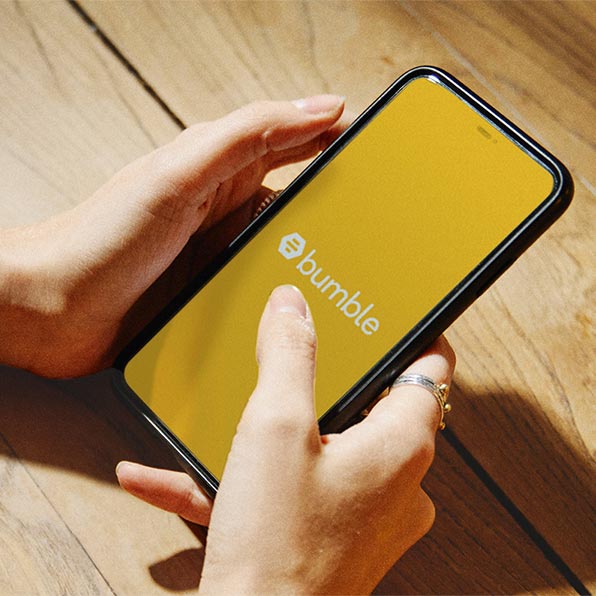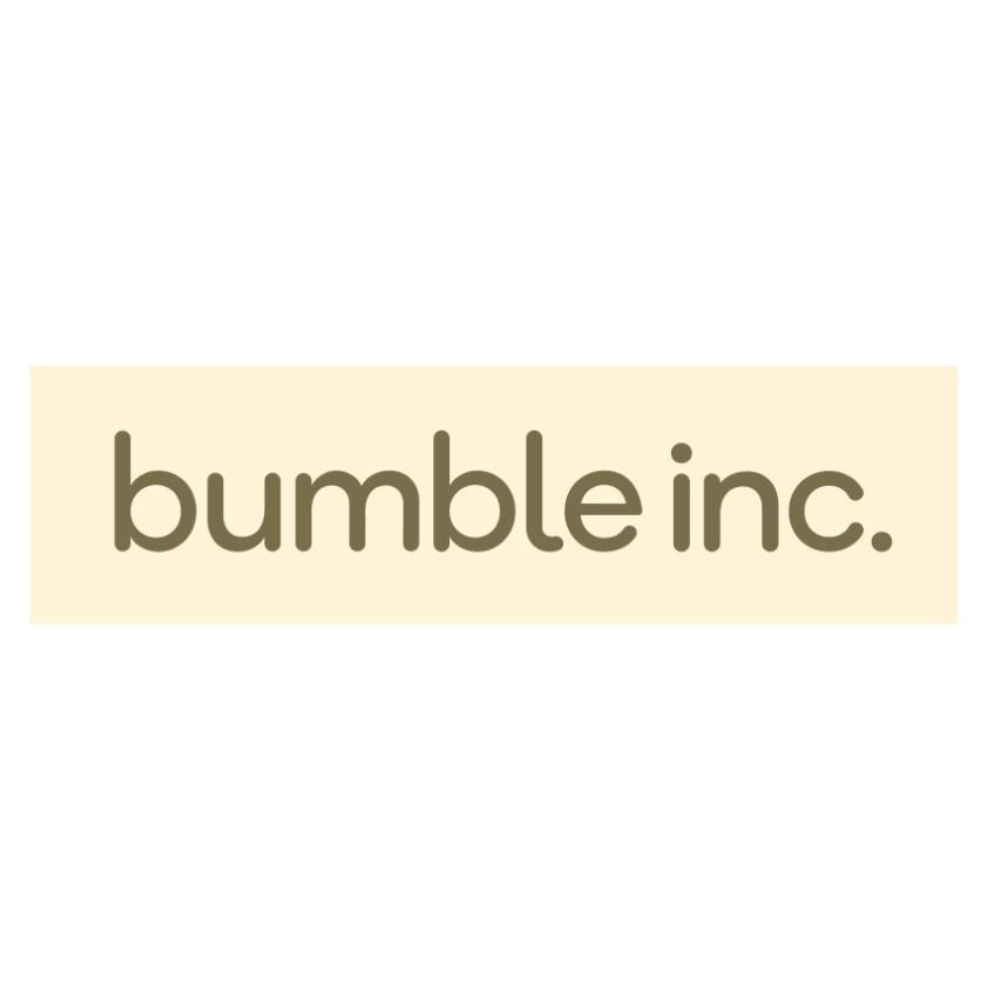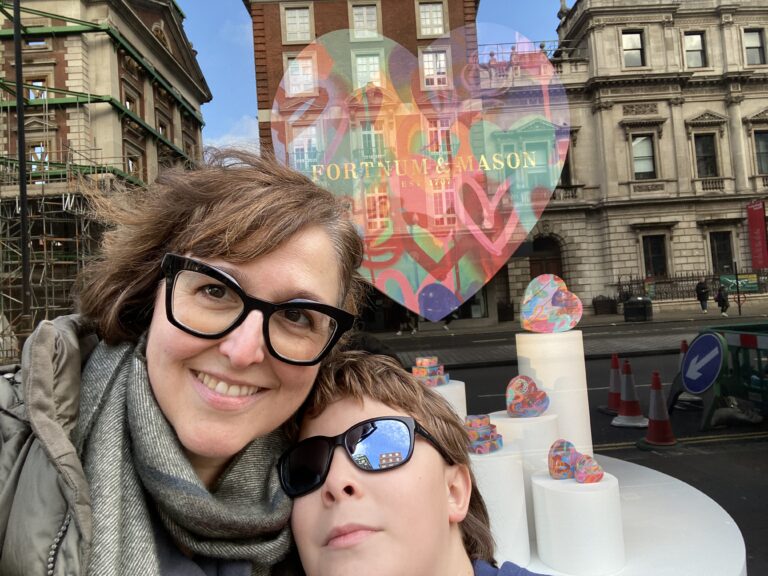I have worked for Bumble for over six years and a key part of my role has been to hire talented people. I currently manage a team of 8 scientists, most of whom I have onboarded remotely during Covid.
I’d love to share some interview tips directly from a selection of the team:
 “Make sure you have used the product and have thought about why certain product decisions might have been made, what metrics you would be interested in tracking, which other features you think would be useful to have and why, and so on. Here at Bumble, we look for technically strong candidates who also have a good product sense.”
“Make sure you have used the product and have thought about why certain product decisions might have been made, what metrics you would be interested in tracking, which other features you think would be useful to have and why, and so on. Here at Bumble, we look for technically strong candidates who also have a good product sense.”Daphne Gavezou-Castro
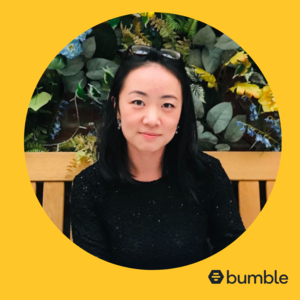
“You’ll likely be asked to talk about a previous project. Make sure you know it well and can describe your contributions. Think about why you made certain decisions in the project, this can be both technical and non-technical. Think about what went well and what can be improved. It’s helpful to share what you can learn from your own experiences and at the same time demonstrate to others your skill sets.
Remember an interview is a two-sided interaction. As you’re being evaluated as an interviewee, you’re also evaluating the company and team. Remember to consider if they are the right fit for you and worth investing your time in the foreseeable future.”
Maggie Wang
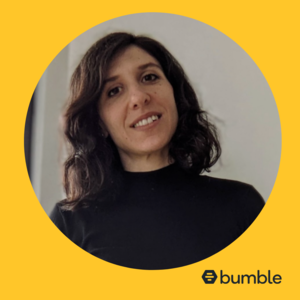
“If you’re unsure about a question, ask for more details. Data scientists have very diverse backgrounds, so sometimes things may have different names, depending on the background of the interviewer. If you really don’t know the answer to a question, just be honest. You don’t want to spend all of your interview time trying to come up with an answer to a question you don’t know. And don’t panic, data science is a very wide field so you could certainly be asked something you’re unfamiliar with.”
Teresa Bono
Hiring at Bumble
Every company has different ideas of an ideal candidate mindset but we find that people who are happiest and who excel at Bumble are those with a growth mindset. We look for people who have the ability to thrive in ambiguity, a real hunger to learn, and a desire to solve complex problems whilst having fun along the way.
It’s important to know what a company is looking for in its people and be prepared for your interview, so make sure to take some time to research the organisation and their products; in our case, you can download our apps and have a think about the impact data science could have on the company.

Making a great CV
I’ve reviewed a lot of CVs over the years and here are my top tips for making a great CV:
-
Present it with a clear and simple format
-
Keep it concise (two pages as a rule of thumb)
-
Give insight into the projects you have worked on; key achievements and technologies used.
When detailing your experience, it’s important to include the key elements of your role and any extra pieces of work or projects that you have had the opportunity to be involved in. A bonus is when a candidate is active in the wider Data Science community, has been involved in Meetups, written some articles or papers, or presented at conferences. It’s important to demonstrate a full picture of all your achievements and capabilities!
Interview structure at Bumble
Our interview process at Bumble is designed to be efficient yet thorough where we assess a broad range of competencies. A data science interview process is generally quite similar wherever you interview, but each company will have its own nuances.
1. Technical screening
Before you begin Bumble’s interview process, you’ll need to have a good grasp of fundamental data science topics. Be sure to brush up on areas such as statistics, machine learning theory, deep learning, natural language processing, and Python. I would recommend some of the following resources to help with your preparation:
If interviewing for Bumble, our Tech blog on Medium can help you gain an insight into some of the projects that members of the Data Science team have been working on. Some of our latest publications from the team are Evaluation of classification models on unbalanced production data and Multilingual message content moderation at scale.
Finally, I would recommend reading up on some recent publications in your favourite field of Data Science and be prepared to tell your interviewer about them.
2. Take home task
Here at Bumble, we assign a take-home test to our candidates where they are given a Jupyter notebook and are asked to work through a machine learning problem. The domain of the problem is online dating as we aim to assess whether candidates can combine machine learning and product sense to a project. We ask that candidates complete the task in Python as that is the language that we primarily use and so is a fundamental skill required.
We appreciate that candidates may be interviewing for multiple roles and interview processes can be lengthy and time-consuming at times. This is why although our test is not timed, we suggest that candidates spend no longer than a few hours completing the task.
3. Final Interviews: Tips for structuring your answers
You’ll nearly always be asked about a past project you worked on. It’s important to answer this in a structured way so that you communicate effectively what the project was and how you contributed to it. Here is a helpful framework to use as a guide.
-
Goal: what was the goal of the project and how does it align with company goals?
-
Impact: what was the impact?
-
Challenges and learnings: what went wrong and what did you learn from it?
-
Highlights: give insight into any interesting findings.
When answering situational-type projects, it can be helpful to consider a STAR framework. STAR stands for Situation, Task, Action, and Result.
-
Situation: what was the situation?
-
Task: which tasks were involved?
-
Action: which actions did you take?
-
Result: what was the result?
Using this framework should help you to clearly convey your key points.

Final thoughts
Be sure to prepare all the core areas for your Data Science interview, before jumping into the process, such as:
-
Data science and machine learning theory
-
Coding practice
-
Explaining your technical experience
It’s increasingly important to familiarise yourself with a company’s values. For example, Bumble is a mission-driven company and part of our interview process is to ensure candidates’ behaviours and ways of working align with our own values; kindness, respect, equality, accountability, and growth. How can you demonstrate that alignment?

Remember! We want you to do as well in the interview process as much as you do and are just keen to find out where your strengths lie. We are nice and friendly people so try to relax. 🙂


